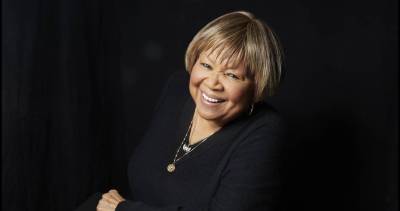B.C.'s first poverty-reduction plan promises affordable housing, childcare, and a look at basic income
During the time that Gordon Campbell was B.C. premier—2001 to 2011—social-policy advocates often complained that ours was the only province in Canada without an official plan to reduce poverty.
Christy Clark took Campbell’s job in March 2011 but the Liberal government remained on the fiscally conservative course that Campbell had set. Clark did raise B.C.’s minimum wage—more than once, actually. But the province remained without the sort of plan to reduce poverty that every other jurisdiction in Canada was working with for many years by that point.
Finally, B.C. officially has a poverty-reduction strategy. Today (March 19), John Horgan’s NDP government unveiled the Poverty Reduction Strategy Act.
"For too long, too many people in British Columbia have been left out and left behind," Mable Elmore, the B.C. parliamentary secretary for poverty reduction, said quoted in a media release. "We're tackling the discrimination and stigma that keep people from reaching their full potential so we can build a province we can all be proud of—one that's more inclusive and more affordable for everyone."
The plan, called TogetherBC, lists six areas it describes as priorities. Those are affordable housing, support for families, access to education and training, opportunities, income support, and social inclusion.
“Using a 2016 baseline, the strategy aims to lift 140,000 people out of poverty, including 50,000 children,” the release reads.
A provincial website for the plan describes its goals another way. “Legislated targets are to reduce the overall poverty rate by at least 25% and child poverty by 50% by 2024,” it reads.
On how we’ll get there, TogetherBC lists a few programs that are already operational or on the way.
It states that under the B.C. Child Opportunity Benefit, families with one child will receive an extra $1,600 a year, families with two children will receive up to $2,600, and those with three could get up to $3,400 a year in government assistance.
In addition, B.C.’s minimum wage will increase from its current rate of $12.65 an hour to $15.20 an hour by 2021. (The minimum wage is scheduled to grow incrementally, with a new rate going into effect each year on June 1.) This will impact more than 400,000 B.C. residents, according to the province.
Other initiatives relevant to the plan concern childcare, income and disability assistance, and access to dental care, among others.
A “Poverty Reduction Advisory Committee” has been appointed to inform the plan and report back on its progress every five years.
"People created poverty, and it's up to people to solve poverty," Sarah Brownlee, a member of the committee, said quoted in the release. "I have experienced poverty first-hand, I have seen my friends and family experience it and I have seen the destructive consequences of lack of opportunity and access. As the poverty reduction strategy moves forward, I will be making sure that the voices of those with lived experience are represented and heard."
In addition to things like higher minimum wage, today’s government release also mentions a more radical idea: a universal-basic income.
This concept has quite a few different definitions, but the general idea sees the government provide everyone who qualifies with a regular amount of money with the aim of addressing poverty and inequality.
“An expert committee is studying the potential to use a basic income approach to reduce poverty and prepare for technological change and the emerging economy,” it reads. “The committee is overseeing research to assess the feasibility of a basic income for B.C. and how basic income principles might be used to improve the existing income and social support system. It will submit its recommendations to government in 2020 to inform the next steps in poverty reduction.”
This committee was first announced in July 2018. Speaking then, B.C. Green party leader and MLA Andrew Weaver was quoted in a government release describing the research as a response to trends in tech.
"Amidst trends like automation, part-time and contract work, the nature of our economy and the jobs within it are rapidly shifting," he said. "There is strong evidence that basic income can provide greater income security, while saving costs in other areas. We proposed exploring how basic income could work in B.C., because government should have a plan for the changes on the horizon. The panelists are highly qualified, knowledgeable and creative thinkers. I am excited to work with them on this innovative project."
While the idea might sound naïve to some, several of North America's most successful capitalists have said they believe that some sort of a universal-basic income will be required in order to address rising inequality and growing risks of widespread social unrest.
Billionaires discussing the idea include Facebook founder Mark Zuckerberg, Tesla and Space X founder Elon Musk, eBay founder Pierre Omidyar, and Virgin Group founder Richard Branson, among others.















Comments